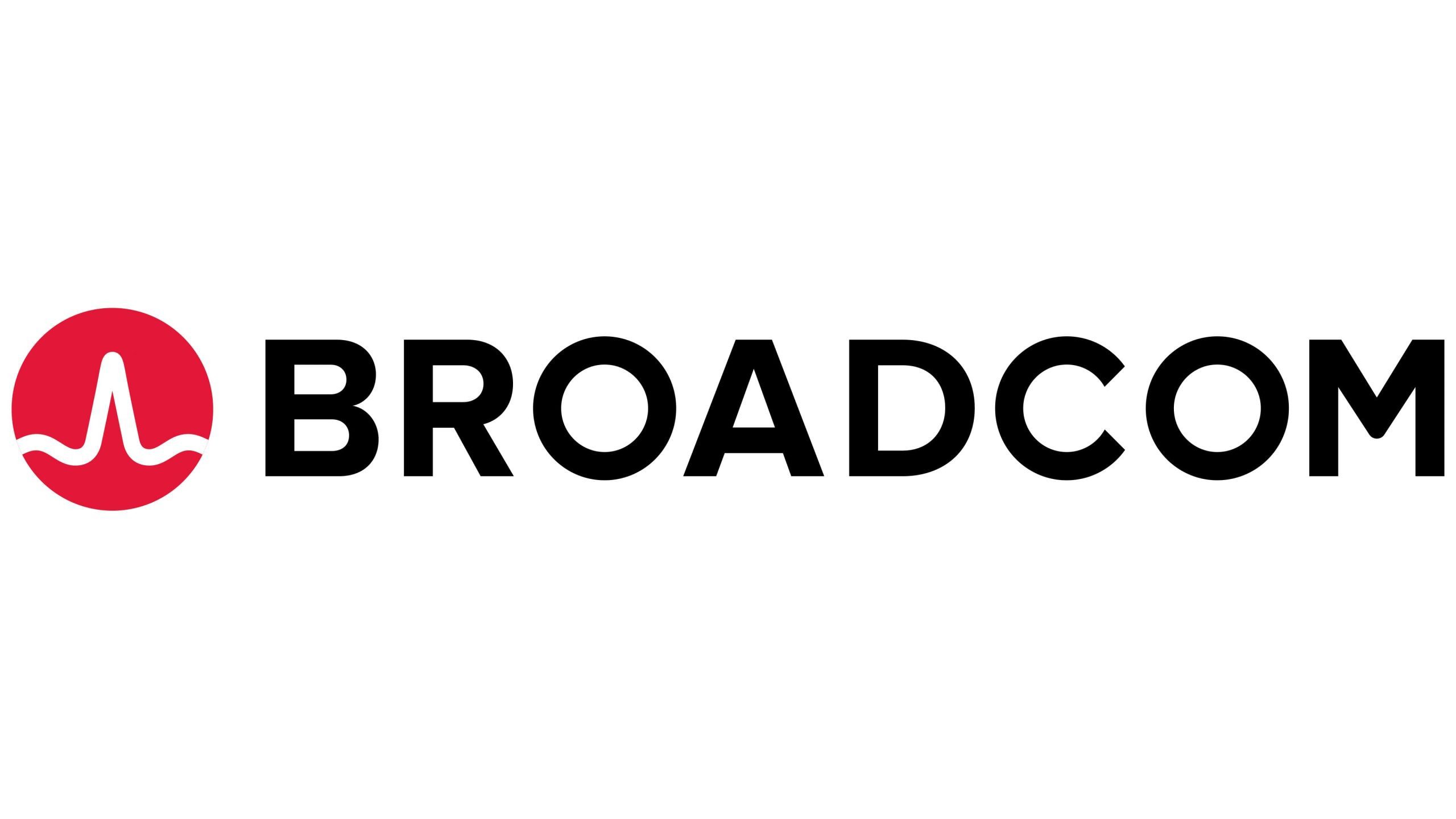Broadcom Inc. (NASDAQ: AVGO) has evolved into one of the most influential players in the global technology landscape. What began as a semiconductor business within Hewlett-Packard in the 1960s is today a powerhouse spanning semiconductors, networking, cloud infrastructure, and enterprise software. With a market capitalization of approximately $800 billion, Broadcom stands tall among the elite companies in the S&P 500, including Apple, Amazon, and Microsoft.
Historical Background
Broadcom’s journey began in 1961 as HP Associates, the semiconductor division of Hewlett-Packard. This unit eventually became part of Agilent Technologies, which spun off its semiconductor business in 2005 under private equity ownership, forming Avago Technologies. Avago went public in 2009 and, in a game-changing move, acquired Broadcom Corporation in 2016 for $37 billion. The merged entity adopted the Broadcom name and the AVGO ticker, signaling a new phase focused on strategic acquisitions and vertical integration.
Strategic Acquisitions That Transformed Broadcom
Broadcom’s growth has been driven largely by its bold acquisition strategy, which has allowed it to move beyond semiconductors into enterprise infrastructure and cloud services.
CA Technologies (2018)
Broadcom acquired CA Technologies for $18.9 billion to enter the enterprise software space. This acquisition provided access to mainframe computing and IT operations management tools, expanding Broadcom’s recurring revenue base and deepening its enterprise reach.
Symantec Enterprise (2019)
In 2019, Broadcom acquired Symantec’s enterprise security business for $10.7 billion. This gave Broadcom control over high-value cybersecurity assets used by governments and Fortune 500 firms, adding a critical layer to its software portfolio.
VMware (2023)
The acquisition of VMware in 2023 for $61 billion marked Broadcom’s most ambitious move yet. VMware’s expertise in virtualization and hybrid cloud management aligned perfectly with Broadcom’s long-term strategy to lead in enterprise IT infrastructure. The deal enabled Broadcom to compete more aggressively with cloud leaders like AmazonAWS and Microsoft Azure.
Broadcom’s Expansive Product Portfolio
Broadcom’s offerings are broad, technologically advanced, and cater to critical infrastructure needs.
Semiconductors and SoCs
Broadcom designs high-performance chips used in everything from smartphones and data centers to telecom infrastructure. It provides custom SoCs and ASICs for companies like Apple, Cisco, and Google, serving industries that require low-latency, high-bandwidth processing power.
Networking and Connectivity
The company is a leader in networking chips, including Ethernet switching, broadband modems, and Wi-Fi/Bluetooth solutions. Its components power hyperscale data centers, cloud platforms, and global communication networks.
Cloud Infrastructure and Software
With acquisitions like CA Technologies, Symantec Enterprise, and VMware, Broadcom has solidified its role in cloud security, virtualization, and IT automation. These assets allow the company to offer complete solutions for enterprises building hybrid and multi-cloud environments.
Financial Strength and Market Standing
Broadcom’s market capitalization places it among the top technology companies globally. In FY2024, the company reported over $35 billion in revenue, with more than 50% generated from software services—a notable shift from its hardware-heavy past. With EBITDA margins above 60%, Broadcom is a cash-rich, dividend-paying machine that rewards its shareholders consistently.
In the competitive landscape, Broadcom shares the stage with companies like NVIDIA, Meta Platforms, Berkshire Hathaway, and Tesla, all of which play transformative roles in their respective sectors.
Regulatory Scrutiny and Challenges
Despite its success, Broadcom has faced scrutiny, particularly in Europe, following the VMware acquisition. Several enterprise customers and cloud providers have raised concerns about steep price hikes and restrictive licensing practices. The European Union is currently reviewing these complaints, and regulators are examining whether Broadcom’s tactics are anti-competitive.
Broadcom maintains that its integration strategy is customer-focused and aimed at delivering better performance, tighter security, and improved infrastructure control. CEO Hock Tan remains committed to building a software-hardware synergy that supports large-scale enterprise digital transformation.
Conclusion
Broadcom Inc. is a prime example of how legacy semiconductor companies can reinvent themselves for the future. Through aggressive acquisitions, a focus on recurring revenue, and robust R&D, Broadcom has transitioned into a hybrid tech powerhouse that’s shaping the future of cloud infrastructure and AI-ready systems.
With an eye on further innovation and tighter integration across its product ecosystem, Broadcom is set to play an even more influential role in global tech infrastructure. For investors, enterprises, and analysts, this is a company whose story is far from over—it’s just getting started.


